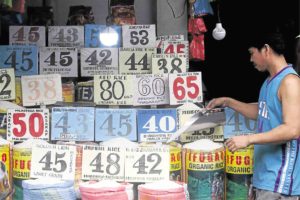San Miguel Corp.’s (SMC) proposed Bulacan “aerotropolis” will have to rely on its own to become profitable as the government did not commit to divert flights from existing airports, Budget Secretary Benjamin Diokno said on Wednesday.
“Our condition is very clear—that there will be no commitment on the part of the government to transfer flights from Clark or Naia (Ninoy Aquino International Airport) to Bulacan,” Diokno told reporters.
As such, “they have to compete to make the airport better, more attractive so that airline companies will voluntarily locate in Bulacan,” the budget chief said.
Finance Secretary Carlos Dominguez III earlier expressed reservations on the unsolicited airport proposal of the diversified conglomerate as the main proponent and its subsidiary San Miguel Holdings Corp. had only P60 billion in total equity in 2016, hence could not finance the project.
As such, the Department of Finance had suggested requiring SMC to execute a joint and several liability agreement to guarantee the financially “incapable” holdings firm.
In October, SMC president Ramon Ang told a business forum that the conglomerate already agreed to shoulder right-of-way costs for its massive airport proposal.
For his part, Transportation Secretary Arthur Tugade had said they were able to resolve most of the issues during their recent meeting with Ang such that the Department of Transportation (DOTr) could soon issue a certificate of successful negotiation.
Upon approval of the state planning agency National Economic and Development Authority, the unsolicited proposal would be subjected to Swiss challenge by year-end, according to Tugade.
The proposed new international aerotropolis, or a metropolis revolving around an airport, would involve a massive complex to be built on a 2,500-hectare location along Manila Bay in Bulakan town.
The airport project, which had been awarded an original proponent status by the DOTr, would have an initial capacity of 100 million passengers or more than three times that of the Naia, the country’s gateway to Manila.


